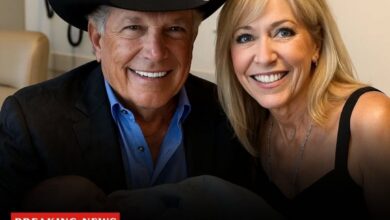Mtp.Caroline Kennedy Backs Son Jack Schlossberg’s Controversial Social Media Strategy Amid His Bid for Congress

In a political landscape increasingly defined by digital engagement, Jack Schlossberg, the sole grandson of former President John F. Kennedy and Jacqueline Kennedy Onassis, is carving out a unique and contentious path as he announces his candidacy for Congress. His strategy, characterized by a deliberately provocative and often inflammatory social media presence, has drawn both sharp criticism and, notably, the endorsement of his mother, Caroline Kennedy. The former U.S. ambassador, known for her guarded privacy, offered rare public comments on her son’s methods in a recent interview with The New York Times, signaling a generational shift in the Kennedy dynasty’s approach to public life.
Schlossberg is seeking to represent the congressional district that will be vacated by longtime Democratic Representative Jerry Nadler. As he steps onto the political stage, his online persona—cultivated across Instagram and TikTok for nearly a million followers—has become a central point of discussion. This is not by accident. Schlossberg has openly stated that his controversial style is a calculated effort to cut through the noise of modern media. He explained this philosophy to former White House press secretary Jen Psaki earlier this year, arguing that being unexpected or even shocking is a necessary tool to capture attention and spark conversation, a domain where he believes the Democratic party has shown weakness.

His mother, Caroline Kennedy, appears to concur with this assessment. In her interview, she expressed a surprising level of support for his high-risk tactics. “I’m impressed that he’s thought through the different ways of doing that and is willing to take the consequences when he takes a risk that people find offensive,” she stated. This endorsement is significant, coming from a figure who, much like her own mother, has meticulously managed her public image and largely avoided personal controversy. She described her relationship with her son as “incredibly close,” noting his assistance with her work at the Kennedy Foundation and his presence during her diplomatic assignments abroad, suggesting his political ambitions are a matter she and he have closely considered.
The “offensive risks” his mother alluded to are numerous and varied. Schlossberg has used his platform to satirize his uncle, Robert F. Kennedy Jr., with a Halloween costume he dubbed the “MAHA Man,” a post intended to mock his uncle’s “medical knowledge.” In another instance, he made the outlandish and false claim of “having a son” with Usha Vance, the wife of Vice President JD Vance, a move that blurred the lines between political satire and personal fabrication.
However, his most fraught online battle has been with acclaimed television producer Ryan Murphy. The conflict ignited over Murphy’s upcoming series, American Love Story, which is set to dramatize the lives of Schlossberg’s late uncle, John F. Kennedy Jr., and Carolyn Bessette-Kennedy. Schlossberg, who claims Murphy proceeded without consulting the Kennedy family, has been a vocal critic of the project. His criticism escalated dramatically when he posted a photo of Murphy on Instagram with the single-word caption: “pervert.”
The fallout from this post was severe. Murphy told The New York Times that the comment incited a dangerous response from the public. “I received threats against my personal safety and that of my family,” Murphy said, condemning the language used against him. “This is a centuries-old vilification meant to condemn and weaponize hate against gay people, and that’s exactly what he did,” he added, interpreting the slur as a homophobic attack.
Schlossberg offered a defense of his word choice, insisting to the Times that his comment was unrelated to Murphy’s “personal life.” Instead, he argued that the term described what he sees as Murphy’s unhealthy fixation on his family’s tragedy. “In my mind, that’s a form of perversion, to be so obsessed with somebody’s sexuality and their love life, to produce a multimillion-dollar series about them,” Schlossberg explained.
This episode encapsulates the central tension of Schlossberg’s public strategy: his stated goal of engaging the public through provocation versus the tangible harm and offense his methods can cause. While his mother praises his willingness to face the “consequences,” those consequences, in Murphy’s case, allegedly include threats of violence. As Schlossberg launches his congressional campaign, voters will have to decide whether his digital-age tactics represent a bold new form of political communication or a reckless departure from civic discourse, further complicating the storied and complex legacy of the family name he carries. His reliance on his own judgment and that of his mother will be put to the ultimate test under the intense scrutiny of a political campaign.


